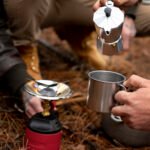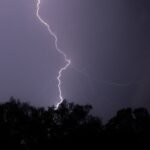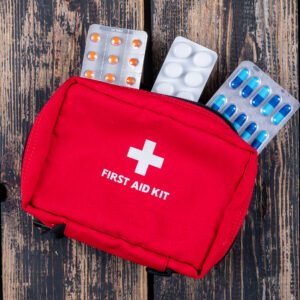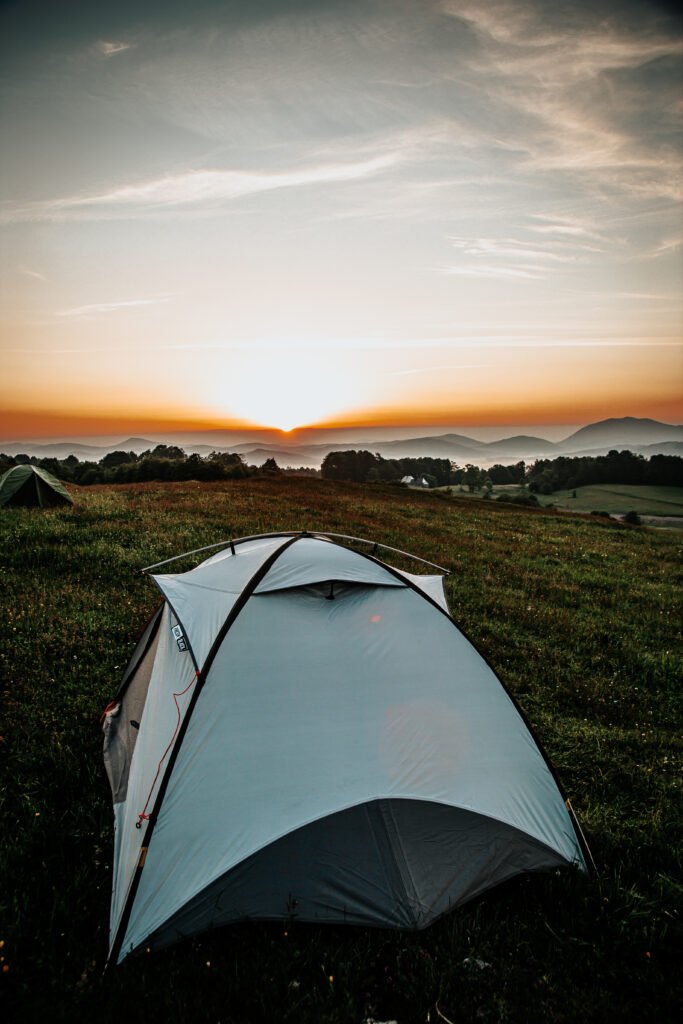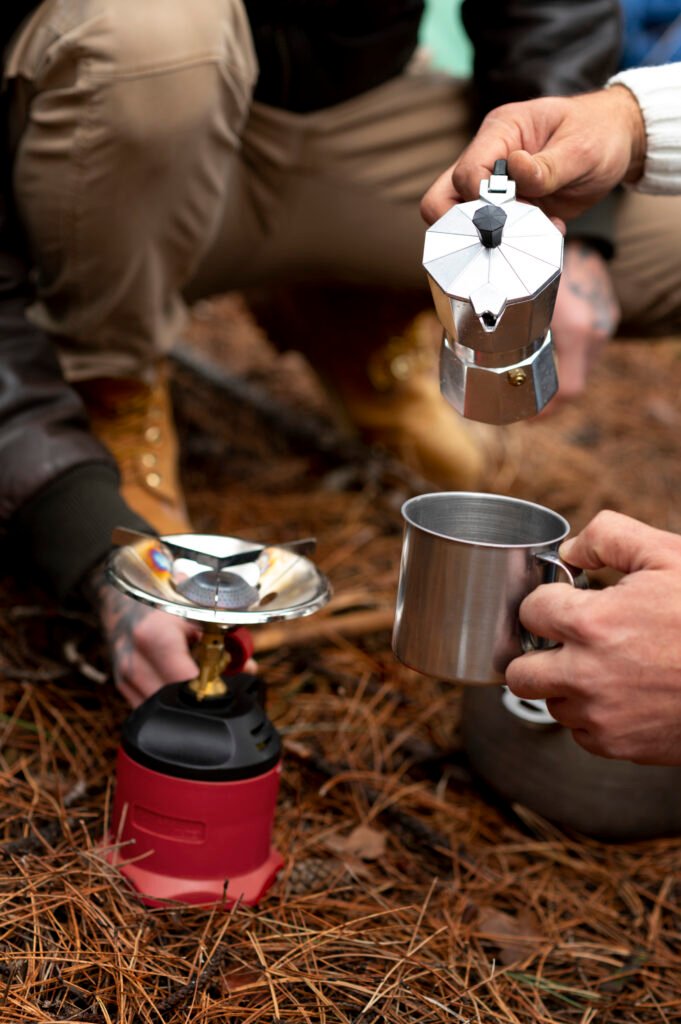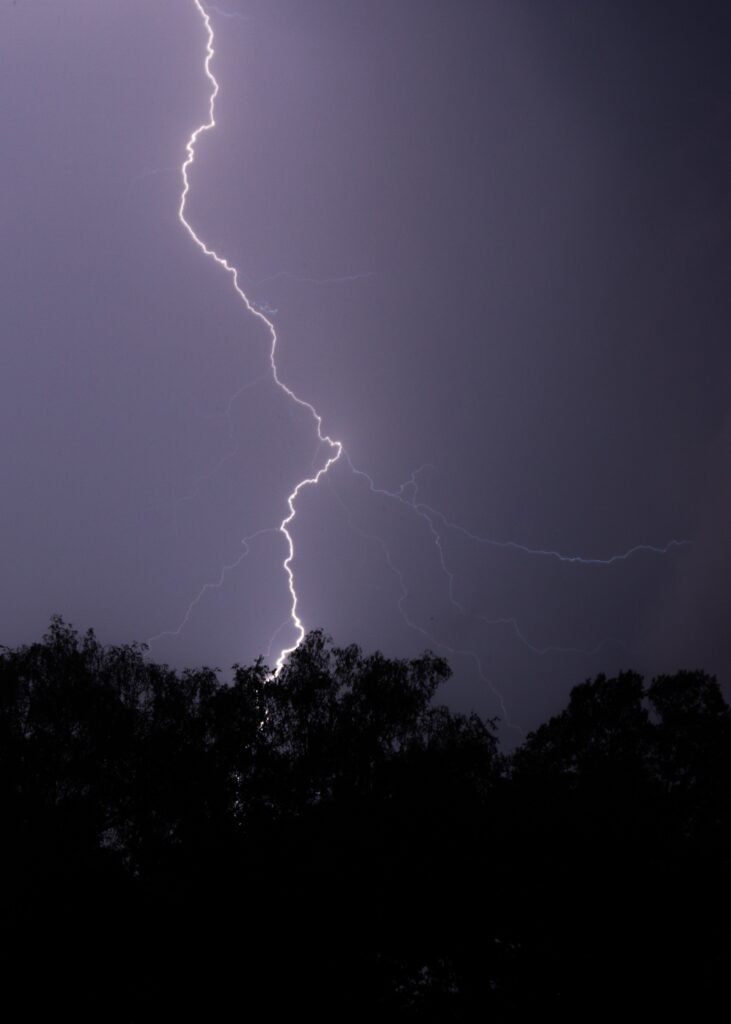Beach camping for beginners – How to choose the right gear?
Planning your first beach camping adventure? This comprehensive beach camping gear guide covers everything from waterproof tents to sand-resistant equipment, ensuring your coastal camping experience is both comfortable and memorable.
What makes beach camping so special?
Who would not want to wake up to the scenic beauty of the vast ocean, and the rhythmic sound of the waves under the blue sky? It is more poetic and enthralling than you ever could have imagined. And what more, if you are not just visiting the place for a few hours, but are planning on a Camping trip to the Beach? It sounds very exciting, and adventurous. Yes! It can be a fun thing and a very memorable beach camping experience for a lifetime.
Is beach camping harder than regular camping? Beach camping can be a very pleasurable and delightful outdoor experience if you plan things well and choose the right beach camping gear essentials.
Unlike traditional camping, beach camping presents unique challenges including sand, saltwater exposure, high winds, and intense UV radiation. The right equipment can make the difference great memorable adventure or a sandy nightmare.
What should first-time beach campers know? Here are a few beach camping tips and tricks that you need to note before hand, and execute so that you have an exhilarating camping experience.
Choose a beach and a camping site on the beach
Check how far the beach is from where you stay, and how long the drive is to the shortlisted beach camping destinations. Start researching the best beach camping spots, and check the availability of the potential camping grounds for beach camping.
Do I need reservations for beach camping? Check whether the camping site on the beach is freely available, or if you have to make prior reservations. Choose a camping ground that meets your comfort for a convenient stay.
What facilities should I look for in a beach campground? Look for designated beach camping areas with facilities like restrooms, freshwater access, and fire pits. These amenities are crucial for beginners and significantly enhance your coastal camping experience.
Check on the Weather
What weather challenges should I expect at the beach? When it’s a beach, then we have to be careful about three different kinds of weather conditions that can rapidly change in coastal environments.
Sometimes, it might be too sunny and sultry, sometimes the weather may turn out to be very windy, and at times, it might suddenly be pouring. So, being prepared for all three kinds of weather is a wise thing.
Why are tides important for beach camping? Also, it is good to check high tide and low tide times using tide charts, so that you know where to pitch your tent during high tides and avoid potential flooding.
To handle the hot weather
When it’s sunny weather, we do not forget our sunscreens (SPF 30+ recommended for beach environments), hats, lots of water to stay hydrated, juicy fruits, and fruit juices to quench our thirst.
Beach camping exposes you to reflected UV rays from sand and water, increasing sun exposure by up to 40%. Pack extra sunscreen and reapply every 2 hours.
We shouldn’t forget to take lightweight and breathable clothes, and also the most important thing is the umbrellas to protect us from the heat. For additional protection from the sun, you can pack shade canopies to be pitched over the tent. Carrying the right footwear for beach camping to walk on the sandy uneven terrains and hot sand is a sensible thing to do. Water shoes or sand-proof camping sandals are essential beach camping gear.
Invest in UV-rated beach camping shelters or pop-up canopies with UPF 50+ protection.
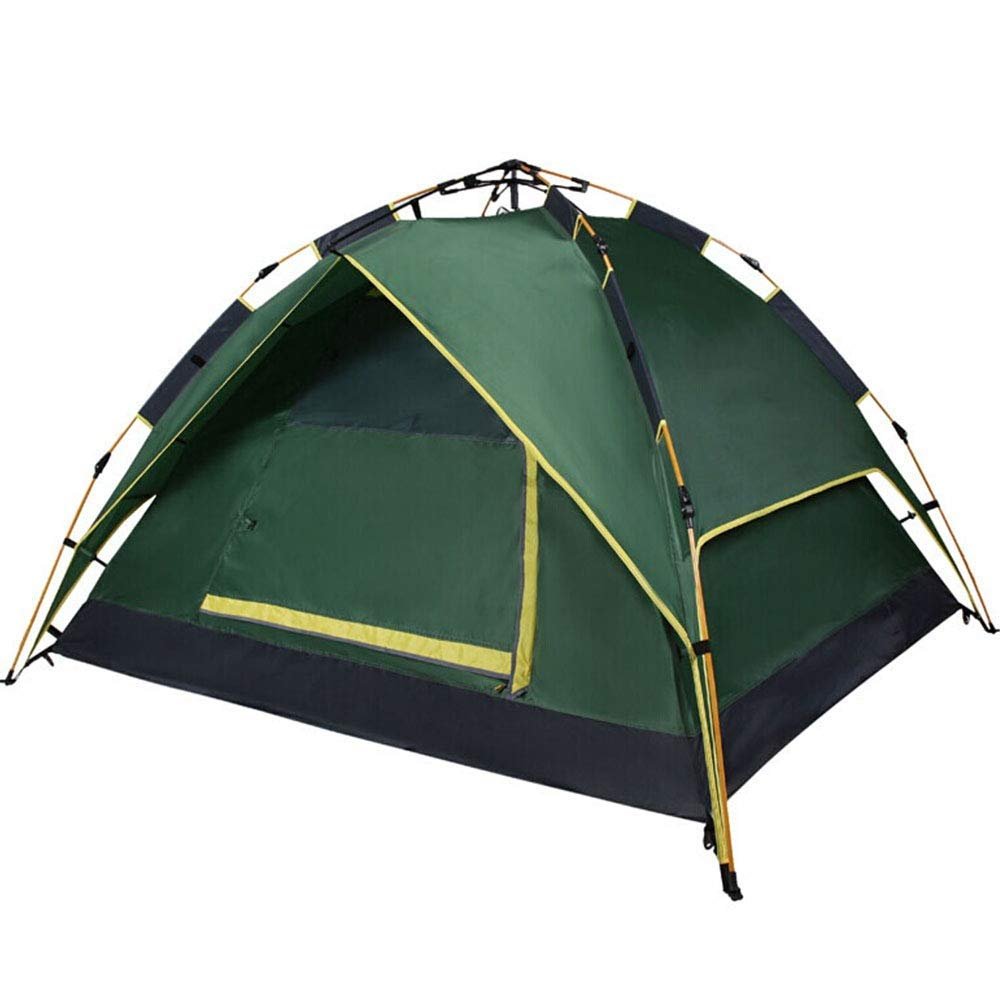
To handle the windy weather
Why is wind such a big problem for beach camping? It’s very common on beaches to suddenly get windy and stormy, making wind-resistant camping gear absolutely essential for coastal camping. Coastal winds can reach 25-40 mph without warning. Your tent choice is critical – look for low-profile, geodesic designs specifically rated for high winds.
What’s the secret to securing a tent on sand? You have to be prepared to handle the high-speed wind. This calls for securing your tent very tightly with specialized sand stakes or sand anchors, and doubly ensuring that you have nicely anchored your tent to the ground.
To handle sudden rains
Carry extra tarps to cover your tent and create waterproof camping setup. This way you can provide an extra layer of storm and rain-proofing your tent and secure your tent from getting wet when it rains unexpectedly.
Beach storms can bring saltwater spray that’s more corrosive than regular rain. Choose camping gear with saltwater-resistant materials and rinse everything with fresh water after storms.
Having a Sand Free Entry
How can I keep sand out of my tent? Create a sand-free camping setup by using a beach mat or a tarp that you place before entering the tent.
Removing the sand filled footwear on the beach mat or tarp is very much required to avoid sand entering your tent. Have a bucket full of water, and create a small place to rinse your foot before you enter the tent.
What’s the best system for managing sand? Pro tip: Create a “sand management system” using a large tarp as a staging area. This becomes your gear storage and sand-removal zone, keeping your tent interior clean and pristine at all times.
Keep the doors of the tent closed or zipped, so that sand doesn’t come in easily. Also, make sure, that you shake out and dust off your beach gear, and then enter; else the sand stuck to the beach gear might also dirty the tent.
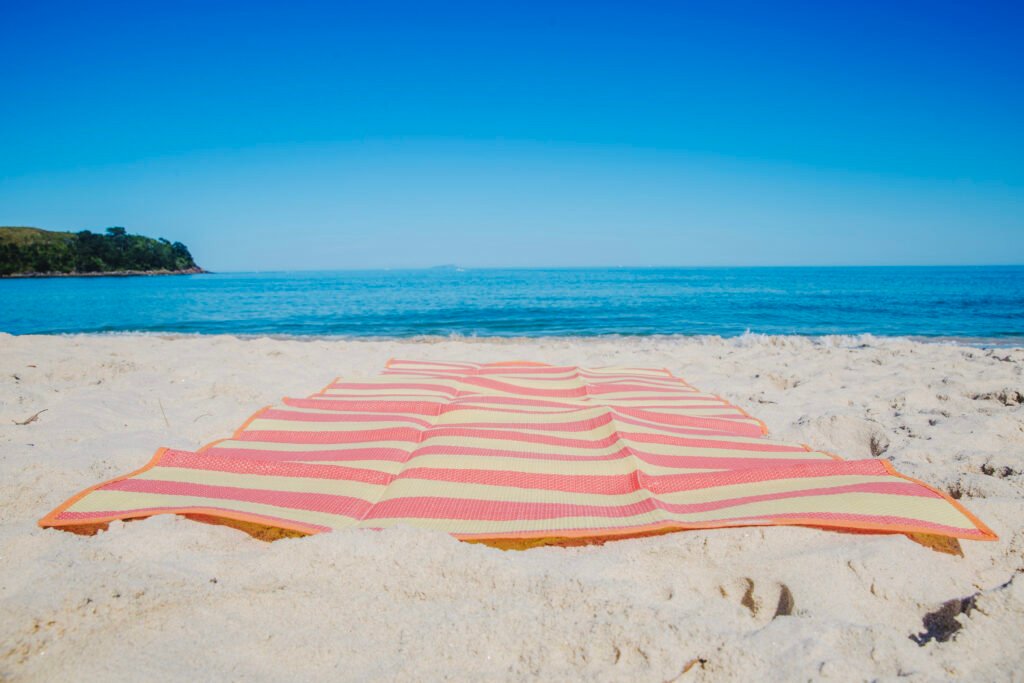
Should I choose a tent with extra storage space? Consider tents with vestibules or gear storage areas where you can leave sandy items outside your sleeping area. This feature is invaluable for beach camping comfort.
Carry equipment for lighting up your tent and campsite
After sunset, beaches tend to become very dark suddenly, making proper beach camping lighting essential for safety and comfort. Unlike forest camping, beaches offer no natural windbreaks for candles or standard lanterns. Opt for enclosed, wind-resistant lighting solutions.
You can take solar-powered lanterns, battery-operated LED lights, flashlights, headlights, and string lights designed for outdoor use. Solar camping lights work exceptionally well at beaches due to abundant sunlight.
You have to carry a portable battery charger, and a lot of batteries, to keep the place lit up. Keep a set of candles too, in case you need them for an emergency.
Pack beach side Camping Chairs
Having fun on the beach is one thing, but you can’t stand, play, or walk all the time; you need comfortable beach camping furniture to sit, relax, and enjoy the sunset. Packing a few camping chairs before you set out would be the best thing to do. Also, these beach camping chairs come in very handy when you want to have comfortable seating near your tent, and also sit around the campfire for a lovely family time.
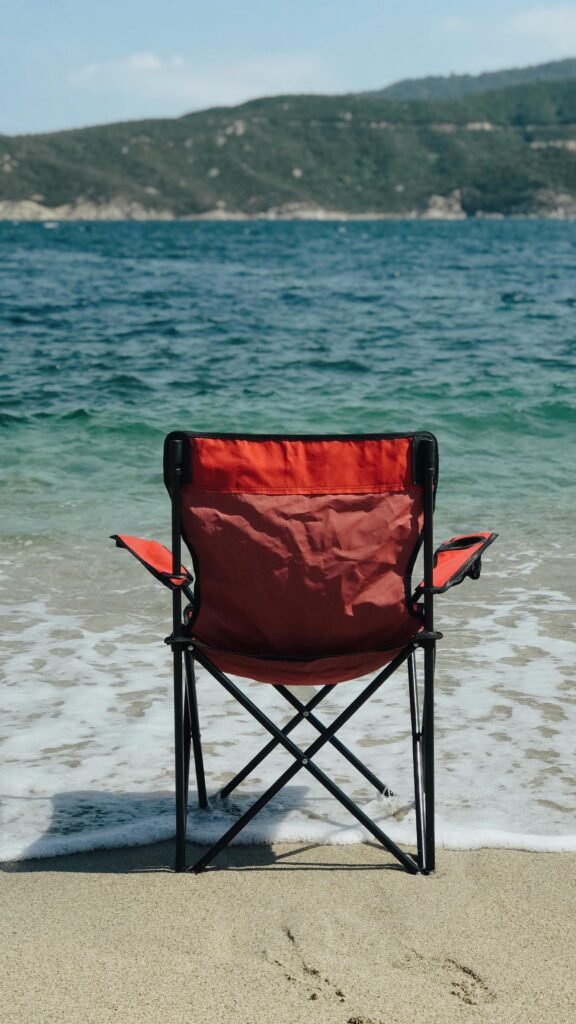
Bug and Insect Repellant
What kind of bugs should I expect at the beach? Usually, sandy beaches come with pesky bugs like sand fleas, no-see-ums, and ticks, which have to be kept at bay with effective insect repellent for camping.
When are sand fleas most active? Sand fleas (beach hoppers) are most active during dawn and dusk. They’re attracted to organic matter, so keep your campsite clean and use permethrin-treated camping gear.
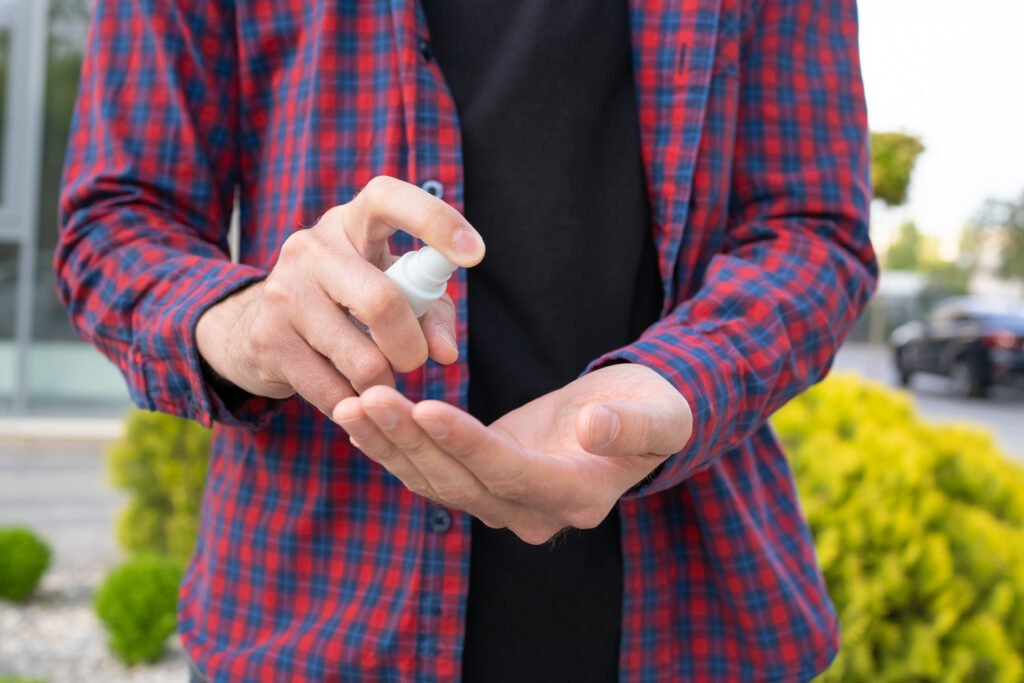
What’s the most effective repellent for beach camping? So carrying bug sprays and insect repellent camping gear might be very helpful, to keep your tent bug-free, and enjoy a sound night’s sleep.
DEET-based repellents work best against sand fleas and coastal insects. Also pack a mesh tent with fine screening – standard camping tents may not keep out tiny sand flies.
Carry an Ice Cooler
Ice coolers are indispensable camping gear for beach camping, especially when exposed to high temperatures, and sandy beaches are one of them.
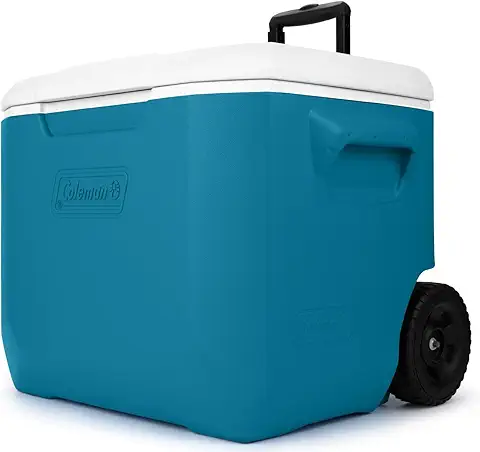
Beach camping coolers face unique challenges: sand infiltration, saltwater exposure, and intense heat. Look for coolers with tight-fitting lids and drain plugs.
Having a quality camping cooler helps keep your food and beverages fresh and chilled for longer periods. Thick insulation coolers can withstand hot weather for longer periods and prove handy to keep your food items fresh.
Brooms and Dustpans

In sandy terrains, brooms and dustpans are essential beach camping cleaning supplies, especially when you want to keep the inside of your tent sand and dust-free.
Sand gets everywhere – it’s the biggest challenge of beach camping! A small whisk broom and dustpan are lightweight essentials that make tent maintenance much easier.
Sometimes, even if you have tried your best, sand tends to get in the tent and it becomes very hard to get away with small grains of sand particles. During this time, a broom and dustpan helps you clean your tent very well and keep it tidy at all times.
Beachwear and beach toys
Never forget to pack all your beachwear and beach activity gear like your swimsuits very meticulously, an extra set of quick-dry towels, sandals or water shoes with good grip that can be used on sand and in water, beach robes and your SPF 30+ sunscreen to protect yourself from harsh UV rays.
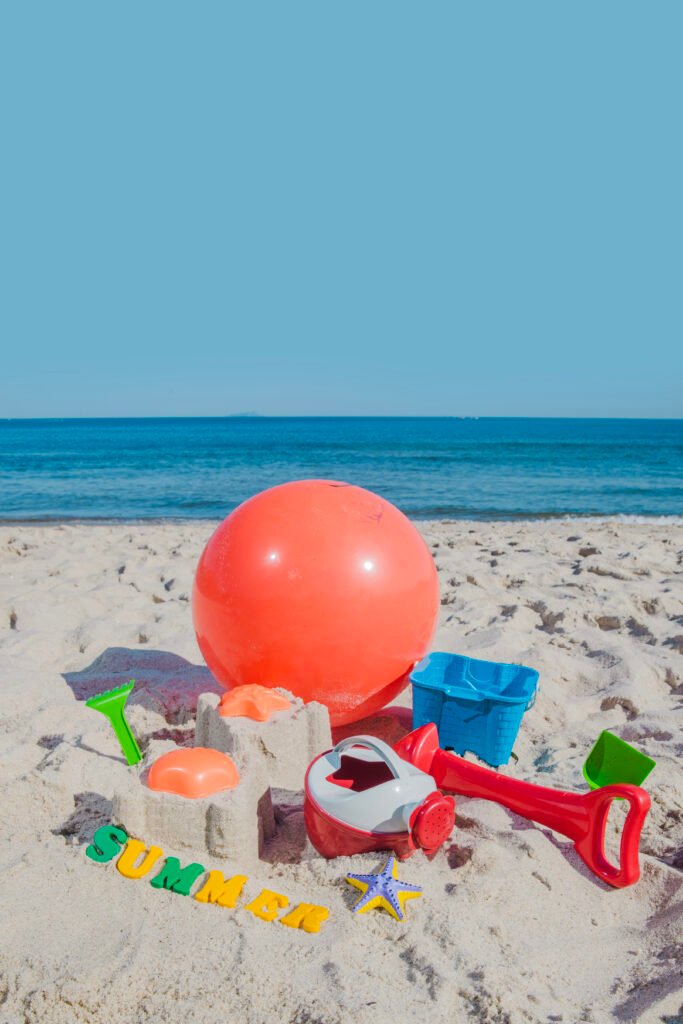
Pack 2-3 times more towels than you think you’ll need. Beach camping means constant exposure to sand and saltwater, requiring frequent towel changes.
Once you start enjoying time at the campsite and want to spend time at the beach playing, you might want to pack beach volleyball to play with your friends and family.
Beach camping offers unique recreation opportunities! Pack a frisbee, beach volleyball, or spikeball set. These activities are perfect for beach camping entertainment.
Sometimes, to try new things, you can pack in kites, soar them high, and enjoy the competition with your friends. You might also be interested in carrying sand toys like sand buckets, shovels and molds, to dig in the sand, and build sand castles.
Plan plenty of food options
What’s different about cooking at the beach? Planning food for beach camping trips is tricky. While keeping in mind nutrition and freshness, you also need to bring variety and taste while accounting for saltwater exposure and limited cooking facilities.
How do I protect my cooking gear from saltwater? Saltwater can corrode cooking equipment quickly. Choose stainless steel or aluminum camping cookware, and rinse everything with fresh water after each use.
So, sandwiches, wraps etc. can be prepared and stored in the cooler and then had when you are hungry. At the same time, proximity to the sea encourages you to have grilled fish and shrimp.
Many beach camping areas allow fishing! Research local fishing regulations and consider bringing basic fishing gear for fresh catches. Just remember to get proper licenses.
With a portable camping stove, and some basic pots and pans, you can cook tasty and healthy one-pot meals that can be soul-satisfying while beach camping with your family.
It will give you that home-away-from-home feeling, with good food while on an outdoor trip.
Camp friendly snacks
How much food should I bring for beach camping? In addition to regular meals, pack plenty of camping snacks to eat throughout the day, and keep yourself energized for beach activities.
What snacks work best in beach heat? A few such things could be granola bars, cookies, bread, cakes, popcorn, fresh fruits, dry fruits, trail mix and many more healthy options, which can last easily for 3 to 4 days in proper storage.
Avoid chocolate and gummy snacks – they melt quickly in beach heat! Opt for nuts, dried fruits, and energy bars that withstand high temperatures.
Essential Beach Camping Gear Checklist
Here’s your ultimate beach camping essentials checklist to ensure you don’t forget crucial items:
Shelter & Sleep: Wind-resistant tent, sand stakes, sleeping bags rated for coastal humidity, sleeping pads, tarps.
Sun Protection: UV shelter, sunscreen SPF 30+, wide-brimmed hats, UV-protective clothing.
Water & Hydration: Extra water containers, water purification tablets, electrolyte supplements.
Safety: First aid kit, whistle, waterproof phone case, emergency contact list
Comfort: Sand-resistant chairs, quick-dry towels, portable shower, camping table
So, by taking care of the above beach camping tips and choosing the right beach camping gear, you can have a thrilling and venturesome camping trip on the beachside.
Remember, successful beach camping is all about preparation and having the right gear for coastal conditions. With proper planning and quality equipment, you’ll create unforgettable memories while staying comfortable and safe.
The excitement and adventure of beach camping is fulfilled with all the essential gear planned and executed well – now get out there and enjoy those ocean sunrises!

